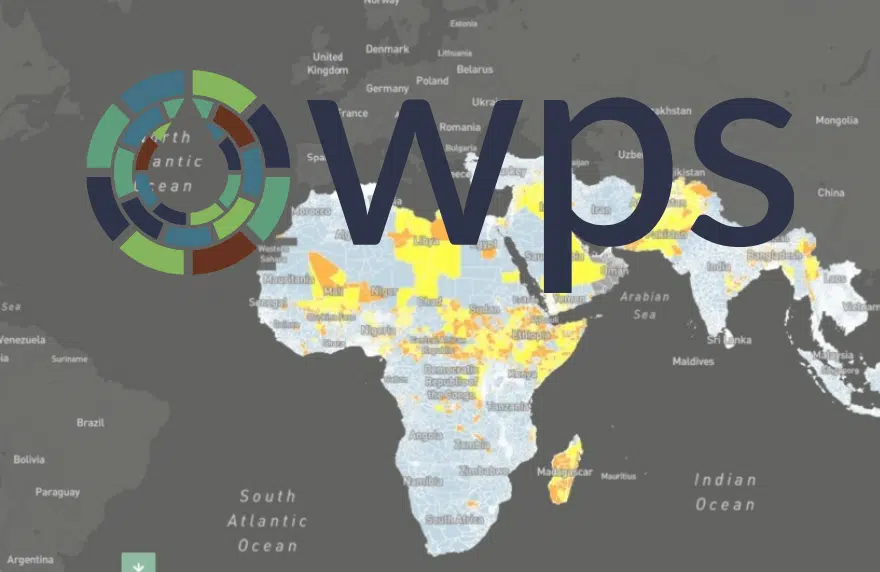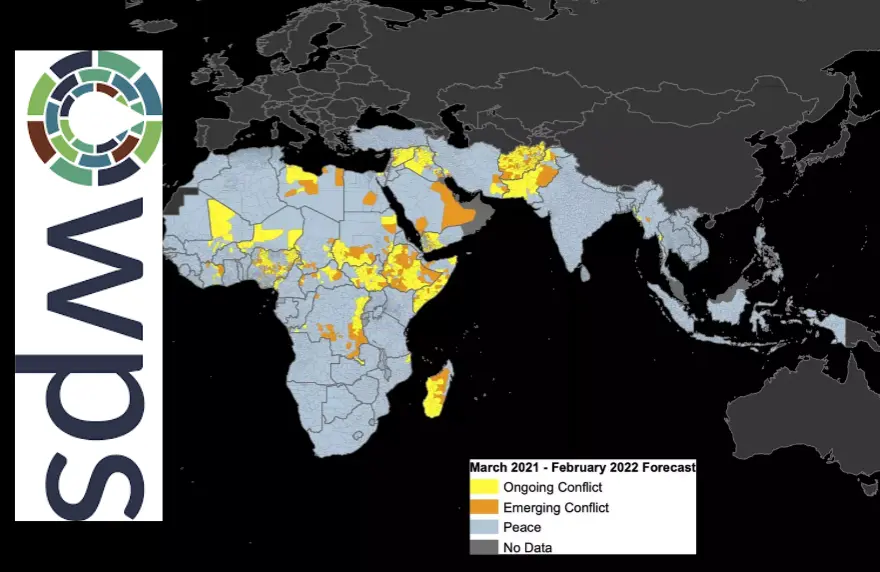Out now: the Water Peace & Security Global Early Warning Tool quarterly update reflects our latest projections and accompanies our updated map, allowing us to flag some of the conflict hotspots that we are tracking in Africa, the Middle East, South and Southeast Asia.
The WPS Global Early Warning Tool provides the initial step in a multi-step process, employing machine learning to predict conflict over the coming 12 months in Africa, the Middle East, and South and Southeast Asia. This quarterly update reflects some of our latest projections and accompanies our updated map, allowing us to highlight some of the conflict hotspot that we are tracking in these regions:
- East Africa: Six million East Africans have been impacted by floods in 2020. We are predicting emerging or ongoing conflict throughout much of Somalia, Ethiopia, Kenya, Sudan, and South Sudan. A few highlights:
- Kenya: In May 2020, Kenyan officials estimated that massive flooding had impacted about 800,000 people throughout the country. The WPS Global Early Warning Tool predicts emerging conflict in many areas throughout the country over the next 12 months.
- South Sudan: About 400,000 people have been killed and over 4 million more have been displaced through years of civil war (2013-2020) in South Sudan .This year’s torrential rains and flooding have displaced over 600,000 people and threaten “catastrophic” hunger across the country. “In total, 240,000 people have been displaced in Jonglei and 221,000 in Lakes. The WPS Global Early Warning Tool predicts emerging or ongoing conflict throughout most of the country over the next 12 months.
- Zimbabwe: Zimbabwe’s drought-related woes continue, with about 7 million people in urban and rural areas (nearly half the country) requiring humanitarian assistance. Poor economic and political conditions, together with COVID-19 are compounding drought-driven food insecurity. The WPS Global Early Warning Tool is currently predicting emerging conflict in the Harare region over the next 12 months.
- Iraq: Protests across southern and Central Iraq that culminated in the resignation of Iraq’s prime minister in late 2019 were also due to lack of access to basic services, including clean water and electricity. A number of factors are driving declining river flows in the Tigris-Euphrates, ruining productive land and rendering freshwater sources undrinkable throughout much of southern Iraq. The WPS Global Early Warning Tool predicts emerging or ongoing conflict throughout much of southern and central Iraq over the next 12 months.
- Iran-Afghanistan Border Regions: relations between Iran and Afghanistan – where a significant share of Iran’s water resources originates – have deteriorated as Afghanistan’s Kamal Khan Dam along the Helmand River nears completion this year. Tensions in the Harirud river basin are running equally high, as the Pashdan Dam moves towards completion near the end of 2021. The WPS Global Early Warning Tool predicts emerging conflict in the Helmand River border region over the next 12 months.
- Bangladesh: One third of the country had been inundated by monsoon rains as of August 2020, and more than 1.5 million Bangladeshis are displaced. More severe and more frequent flooding happened along the Brahmaputra River as a result of more intense rainfall, which is projected to continue worsening as a result of climate change. Sea level rise will also gradually submerge large swaths of this low-lying country.
Read the full Global Early Warning Tool quarterly update here.
Read more about the WPS Partnership here.


